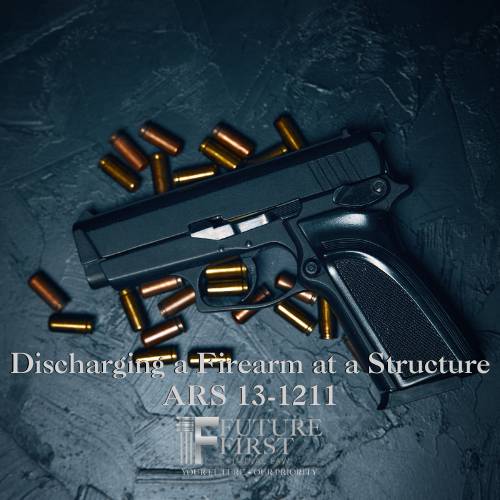Navigating rental disputes can be overwhelming, especially when faced with complex legal jargon and landlord-tenant laws. Tenant lawyers play a crucial role in protecting your rights and ensuring fair treatment. Seeking a free consultation with a local tenant lawyer is a smart first step, offering you expert guidance without financial commitment. In this article, we’ll explore the importance of tenant lawyers, how to find the best ones near you, and how to make the most of free consultations. By understanding your options, you can approach rental disputes with confidence and secure affordable legal solutions tailored to your needs.
Delve into this topic with bzcat.xyz for a comprehensive understanding.
1. Why Tenant Lawyers Are Essential:
Tenant lawyers are essential because they specialize in the complexities of landlord-tenant relationships, providing invaluable support when conflicts arise. These legal professionals understand the nuances of housing laws, rental agreements, and tenant rights, ensuring that you are not taken advantage of or subjected to unfair practices by landlords.
Without proper legal representation, tenants can easily find themselves overwhelmed by legal jargon and procedures, leading to unfavorable outcomes in disputes over issues like wrongful eviction, security deposit disputes, or habitability concerns. Tenant lawyers can effectively negotiate on your behalf, protect your interests in court, and guide you through the legal processes, ensuring your rights are upheld.
Moreover, tenant lawyers can help prevent disputes from escalating by offering preventive legal advice and drafting clear, legally sound rental agreements. This proactive approach can save you time, money, and stress in the long run. Whether you’re dealing with a minor disagreement or a significant legal issue, having a tenant lawyer by your side ensures that you’re well-equipped to handle any challenges and achieve a fair resolution.

2. Why Seek a Free Consultation:
Seeking a free consultation with a tenant lawyer is a strategic move for anyone facing rental disputes or legal uncertainties. Free consultations provide an opportunity to gauge the lawyer’s expertise and assess whether they are a good fit for your specific needs, all without financial commitment. During this initial meeting, you can outline your concerns, ask questions, and receive preliminary legal advice that helps you understand the strengths and weaknesses of your case.
Moreover, a free consultation allows you to explore potential legal strategies and options before making any decisions. It’s a chance to determine the costs involved, discuss possible outcomes, and understand how the lawyer plans to approach your case. This insight can empower you to make informed choices, ensuring that you engage the right legal representation. Ultimately, a free consultation serves as a valuable first step in resolving rental disputes effectively while keeping legal costs manageable.

3. How to Find the Best Tenant Lawyers Near You:
Finding the best tenant lawyers near you involves a strategic approach to ensure you receive high-quality legal representation. Start by researching local law firms and individual practitioners who specialize in landlord-tenant law. Online directories, legal review sites, and local bar associations can be excellent resources for identifying reputable lawyers in your area. Pay attention to client reviews, ratings, and any disciplinary actions, as these can provide insights into a lawyer’s track record and professionalism.
Personal recommendations from friends, family, or colleagues who have faced similar legal issues can also be invaluable. They can offer firsthand experiences and suggest lawyers who successfully resolved their cases. Additionally, many tenant advocacy groups and nonprofit organizations provide referrals to trusted tenant lawyers.
Once you have a shortlist, visit the lawyers’ websites to review their credentials, areas of expertise, and any free resources they may offer. Contact each lawyer to inquire about free consultations and availability. Taking these steps will help you find a tenant lawyer who is not only qualified but also a good fit for your specific legal needs.

4. How to Evaluate Free Consultation Offers:
Evaluating free consultation offers is crucial to ensure you choose the right tenant lawyer for your needs. Start by understanding what the free consultation entails. Some lawyers may offer a brief phone call, while others might provide a more in-depth, in-person meeting. Clarify the duration of the consultation and what topics will be covered. A thorough consultation should allow you to discuss your case, ask questions, and receive initial legal guidance without pressure to commit.
Assess the lawyer’s communication style during the consultation. A good lawyer should listen attentively, answer your questions clearly, and explain legal terms in a way that’s easy to understand. This is your opportunity to gauge their expertise, professionalism, and willingness to help. Pay attention to whether the lawyer is genuinely interested in your case or simply looking to secure a new client.
Additionally, inquire about the lawyer’s experience with cases similar to yours. A lawyer who has successfully handled tenant disputes can provide valuable insights and strategies. Take note of any fees discussed for future services and how they structure their billing. Transparent, straightforward fee structures are often a sign of a reputable lawyer.
Finally, trust your instincts. If the consultation leaves you feeling confident and informed, the lawyer may be the right fit. If not, consider other options until you find a lawyer who meets your needs.
5. How Tenant Lawyers Assist with Rental Disputes:
Tenant lawyers play a critical role in resolving rental disputes by offering expert legal advice and representation. They start by thoroughly reviewing your lease agreement and the specific circumstances of your dispute, whether it involves eviction, security deposit issues, habitability concerns, or rent increases. With their deep understanding of landlord-tenant laws, tenant lawyers can identify any violations and develop a strong legal strategy tailored to your situation.
In many cases, tenant lawyers can negotiate directly with landlords or their attorneys to reach a fair settlement, avoiding the need for a court battle. If negotiations fail, they are prepared to represent you in court, advocating for your rights and ensuring that your case is presented effectively.
Additionally, tenant lawyers can help you understand your legal options and potential outcomes, providing peace of mind throughout the process. Their guidance can be invaluable in navigating the complexities of rental disputes, ensuring that you receive a fair and just resolution.
6. What to Prepare for a Consultation:
Preparing for a consultation with a tenant lawyer is essential to make the most of your time and ensure you receive the best possible advice. Start by gathering all relevant documents related to your rental dispute. These may include your lease agreement, any correspondence with your landlord (such as emails, letters, or texts), notices of eviction or rent increase, repair requests, and receipts or photographs that support your claims.
Next, organize a clear timeline of events. This helps the lawyer quickly understand the sequence of incidents and identify key issues. Write down any questions or concerns you have about your case, so you don’t forget to address them during the consultation.
Be ready to provide a brief summary of your situation, including any actions you’ve already taken, such as contacting your landlord or filing a complaint. This background information allows the lawyer to assess your case more accurately.
If possible, research your rights as a tenant in your jurisdiction beforehand. This will help you better understand the advice given during the consultation and ask more informed questions. Finally, be honest and open with the lawyer about your situation. Transparency is key to receiving accurate legal guidance and developing an effective strategy for resolving your dispute.
7. What to Expect from Legal Representation:
When you hire a tenant lawyer for legal representation, you can expect several key aspects of their service. Initially, they will conduct a thorough review of your case, including all relevant documents and evidence, to understand the specifics of your dispute. They will then provide you with a clear legal strategy and outline the steps they will take to address your issues.
Throughout the process, your lawyer will offer regular updates on the progress of your case and any new developments. They will handle negotiations with your landlord or their legal team, striving to reach a favorable settlement or resolution. If the case proceeds to court, your lawyer will represent you, presenting your case, arguing on your behalf, and ensuring that your rights are protected.
Expect your lawyer to provide guidance on legal procedures, help you understand potential outcomes, and offer practical advice on how to navigate the legal system. Their goal is to resolve your dispute efficiently and effectively, aiming for a resolution that upholds your rights and interests.
8. Why Choose a Local Tenant Lawyer:
Choosing a local tenant lawyer offers several distinct advantages when dealing with rental disputes. First and foremost, local lawyers have a deep understanding of the specific landlord-tenant laws and regulations that apply in your jurisdiction. This regional expertise is crucial, as rental laws can vary significantly from one area to another. A local lawyer is familiar with the local court systems, legal procedures, and the common practices of landlords in your area, which can make a substantial difference in the outcome of your case.
Additionally, local tenant lawyers often have established relationships with local judges, court personnel, and other legal professionals, which can facilitate smoother and more efficient legal proceedings. Their knowledge of local practices and precedents enables them to tailor their strategies to better fit the local legal environment.
Accessibility is another key benefit. A local lawyer is more readily available for meetings, court appearances, and quick consultations. This proximity allows for more direct and frequent communication, helping to keep you informed and engaged throughout the process.
Choosing a local tenant lawyer also supports your community and can lead to more personalized service. They are likely to be more invested in achieving a favorable outcome for clients within their own community, understanding the unique challenges and concerns of local tenants.
9. How Free Consultations Can Lead to Affordable Legal Solutions:
Free consultations are a valuable resource that can lead to affordable legal solutions for tenant disputes. By offering an initial meeting at no cost, tenant lawyers provide an opportunity to assess your case and receive preliminary legal advice without financial commitment. This allows you to understand your options and the potential costs involved before making any decisions.
During the free consultation, you can discuss your case and get a sense of the lawyer’s approach and fees. If you choose to proceed with their services, you may negotiate a fee structure that fits your budget, potentially including payment plans or reduced rates for specific services.
Additionally, the insights gained during the free consultation can help you make informed decisions about whether to pursue legal action, settle, or seek alternative resolutions. This proactive approach helps you avoid unexpected legal expenses and ensures that you secure affordable and effective representation for your rental dispute.
10. What to Do After the Consultation:
After the consultation, take several key steps to move forward effectively. First, review the lawyer’s advice and consider whether you feel confident in their expertise and approach. Reflect on the information provided during the meeting, including the proposed strategy, potential costs, and the lawyer’s communication style.
If you decide to proceed with the lawyer, confirm the terms of engagement and any agreements regarding fees or payment plans. Ensure you understand what services are covered and any additional costs that may arise.
If you choose not to hire the lawyer, use the insights gained during the consultation to seek alternative legal representation or explore other resolution options. Keep all documents and notes from the consultation for reference.
Finally, follow up with any additional information or documentation requested by the lawyer. Promptly addressing these requests helps keep your case on track and ensures that you are prepared for the next steps in resolving your rental dispute.
Navigating rental disputes can be challenging, but seeking a free consultation with a tenant lawyer is a crucial first step. It provides an opportunity to assess your legal options, understand potential costs, and gain expert advice tailored to your situation. By carefully selecting a local lawyer and preparing thoroughly, you can effectively address rental issues and secure affordable legal solutions. With the right support, you can handle disputes confidently and protect your rights as a tenant.
bzcat.xyz
